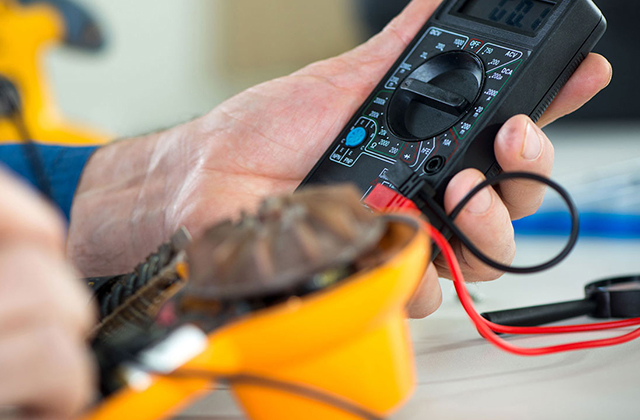2020

Inventive Electric Transportation Companies and Governments
Electrical faults can be unpredictable and become very dangerous very quickly and if it happens to you call immediately for emergency electrician Brisbane. Electric vehicles (EVs) are making headlines with the growing popularity of the Chevy Volt, Nissan Leaf and Tesla Roadster. In order to keep up with the growing interest in electric cars, enterprising companies are investing in building new EV infrastructure in the United States and in other countries including China and France.
Coulomb Technologies, for example, was founded in 2007 to provide electric vehicle infrastructure around the globe. The company’s charging stations are networked to allow drivers to easily find facilities near their location. Consumers can also send requests for new charging stations to be built-in their area at the company’s website. The Coulomb charger was named one of the 50 best new inventions by Time magazine in 2010 with the capability of handling batteries ranging from 120 Volt to 240 Volt AC and up to 500 Volt DC.
Blink, a subsidiary of renewable energy company ECOtality, is also at the forefront of the charge toward improved EV infrastructure. The company offers high-tech solutions for battery charging stations including software that facilitates smart grid operation of recharging facilities. The proprietary software automatically integrates with power companies to provide the most cost-effective battery charging solutions.
The Blink residential charging system provides a smart, interactive interface that allows customers to save money through their network by easily finding low utility rates.
A leading start-up in the electric auto facility industry is Car Charging, Inc., which has been supported by government grants and incentives to help improve America’s charging station infrastructure. The company has been installing charging stations connected to the smart grid at no cost to the property or business owner.
Coulomb, Blink and Car Charging, Inc. are three examples of companies that are leading the way in creating a seamless transition toward greater EV use by developing and expanding charging facilities across the United States.
France and China also see the EV light
America is not the only nation embracing electric cars. France, for example, committed in 2009 to investing 1.5 billion (about $2.2 billion) in EV charging facilities through 2015. New apartment blocks built-in France starting in 2012 will be required to include an electric charging station. By 2015, new office parking lots must provide their own charging facilities.
In China, future electric vehicle sales are predicted to top those in the U.S., although the latter is forecast to have higher sales of hybrid vehicles. Beijing plans on spending $14.7 billion through 2020 on developing new drive-train vehicles with most of the money allotted toward the manufacture of electric vehicles.
China is also spending at least $1.76 billion through 2012 directly on the development of more compact and efficient cars. The country wants to reduce fuel emissions and to reduce its dependence on petroleum products. The government’s goal is to churn out another five million alternative-fuel vehicles by 2020.
According to the firm Pike Research, about 1 million EVs will be sold in China between 2010 and 2015 along with about 850,000 hybrids during the same time frame. In the U.S., Pike estimates that 2.3 million hybrids will be sold over this period together with an additional 840,000 electric and plug-in vehicles.
U.S. to support electric car batteries
In the U.S., nine new electric vehicle battery factories are under construction funded by grants from the federal government. More than $2.5 billion of Recovery Act money is supporting the expansion of American charging infrastructure. In 2009, the Department of Energy granted $249 million to the company A123 Systems to support the manufacturing of lithium-ion batteries in Michigan. The batteries may be used for electric cars produced by Chrysler.
Investments reveal confidence in the electric car’s future
The fact that countries like the United States, China and France are investing billions in subsidizing the expansion of electric charging infrastructure offers insight into the future of the industry.
With increasing calls for control of carbon emissions to address climate change concerns, the demand for the electric car is growing. Many nations with limited oil resources are also looking to reduce their dependence on fuel imports. The all-electric car is one of the top solutions to this problem as it requires no gasoline or diesel fuel.
However, the move toward the electric car cannot work without readily available charging stations. Governments know that in order to encourage consumers to make the switch to electric autos they must make driving practical in more areas. Without sufficient charging stations, drivers would be unable to use vehicles for long journeys. Most EVs cannot run more than 70 to 100 miles at one time, so home charging stations will only work for those who use their cars only for short commutes.
As the availability of electric vehicle infrastructure expands, we should see a proportional rise in the use of the new car technology.
J. D. Johnston
Electric Smart Cars
Electric Smart Cars believes providing reliable information about cutting edge electric vehicle technologies makes a positive contribution toward helping save our environment. Electric Smart Cars [http://www.electricsmartcars.com/forum/] offers a lively forum for those in the know (and for those who want to be in the know) about “all things electric vehicle”. We encourage thorough and informed electric vehicles discussion.
Article Source: https://EzineArticles.com/expert/J_D_Johnston/1087585
Article Source: http://EzineArticles.com/6386611